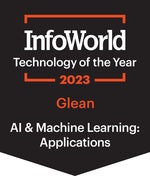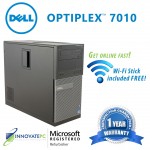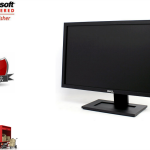Page 2
Databases
Finalists
- DataStax Astra DB
- Imply Polaris
- SingleStore SingleStoreDB
Winner
 IDG
IDGFrom the winner
SingleStore Kai (with MongoDB compatibility) turbocharges analytics on JSON (JavaScript Object Notation) data and enables vector-based similarity searches for MongoDB applications. This is important as JSON data is one of the most prevalent data types in the modern world, yet NoSQL applications like MongoDB are not able to quickly do analytics on this data. Specifically, SingleStoreDB supports vectors and fast vector similarity search using dot_product and euclidean_distance functions. And with the launch of SingleStore Kai, developers can now utilize the vector and AI capabilities on JSON collections within MongoDB. Developers who are familiar with MongoDB can easily power fast analytics on SingleStoreDB without having to learn a new set of tools or APIs—and can continue to use the same MongoDB tools, drivers, skill sets, and ecosystem their customers are most familiar with.
From the judges
SingleStoreDB offers tremendous performance for a number of different workload types. This is a very innovative product that builds from the current software stack, while providing important new functionality that has clear value to the business.
Devops: Delivery
Finalists
- Onfleet
- Mirantis Lagoon
Winner
 IDG
IDGFrom the winner
Onfleet’s platform helps companies manage deliveries and capture the analytics they need to grow their business. Onfleet’s last-mile delivery management software solution helps customers achieve cost reduction, efficiency, and sustainability objectives that become critical as demand for delivery increases. Onfleet is the preferred delivery management software solution for companies wanting to provide a superior delivery experience while maximizing efficiencies. We are known for our comprehensive yet easy-to-use solution, powerful reporting and analytics, and interoperability with other technologies.
From the judges
Great real-time integrated technology for last-mile delivery, showing strong business impact.
Devops: Observability
Finalists
- Grafana Cloud
- Honeycomb Observability Platform
Winner
Honeycomb Observability Platform
 IDG
IDGFrom the winner
Honeycomb’s platform aims to ease the burden of building and monitoring complex software. With Honeycomb, organizations spend less time debugging and firefighting so they can focus on what really matters—innovating and delivering new features for better experiences. This year, Honeycomb launched Query Assistant, the first fully executing natural language querying using generative AI for observability. Leveraging OpenAI, Query Assistant enables developers at all levels to ask questions in plain English instead of a query language, dramatically scaling the platform’s query power while making it possible for everyone on an engineering team to understand code behavior and performance.
From the judges
Honeycomb’s ability to store and query high-cardinality and high-dimensionality data truly sets it apart. Particularly impressive is the attention to business value, with features like QoS alerts and AI-generated queries. The query assistant alone will save users countless hours of troubleshooting.
Devops: Productivity
Finalists
- Gradle Develocity
- LinearB
Winner
 IDG
IDGFrom the winner
Develocity (formerly Gradle Enterprise) improves developer productivity and the developer experience by addressing key developer productivity points of friction, frustrations, and bottlenecks associated with the build and test process. This directly and positively impacts several strategic business outcomes… including faster time to market for revenue-generating software products and services and mission-critical operational improvements; reduced cost of software development; better quality digital services and brand experience; and improved ability to attract and retain developer talent by providing a better developer experience.
From the judges
Multiple technology innovations address a core problem for large development shops—becoming data-driven in helping developers become efficient in addressing software build issues and tests. … The innovation is its data-driven approach and how it connects to dev tools to identify causes of issues.”
Devops: Security
Finalists
- Arnica Application Security Platform
- CrowdStrike Falcon LogScale
- Edgio Web Application and API Protection
Winner
Arnica Application Security Platform
 IDG
IDGFrom the winner
Arnica provides companies with a behavior-based platform for supply chain and application security. Arnica is the first comprehensive pipeline-less security solution to identify and prevent risks associated with your developers, code, and application in real time. Arnica’s platform provides full coverage through native integrations into GitHub, Azure DevOps, and Bitbucket, enabling hard-coded secrets mitigation, anomaly detection, excessive permissions mitigation, and code risk security across SAST (static application security testing), IAC (identity-based access control), SCA (software composition analysis), and third-party package reputation scanning. Mitigation actions are served up to developers via chatops integrations with tools like Slack and Microsoft Teams.
From the judges
Integrated into workflow at the developer level with options for admin notification. … a highly granular solution for software supply chain security.
Devops: Testing
Finalists
- Copado Robotic Testing
- Tricentis Testim
Winner
 IDG
IDGFrom the winner
Backed by Salesforce Ventures and Insight Venture Partners, Copado helps development teams build end-to-end digital transformation for 1,200+ global brands like Coca-Cola, T-Mobile, Medtronic, and Volkswagen. Copado has a 4.99 star rating on the Salesforce AppExchange and is proven to drive 20X more frequent releases, 95% less downtime, 10X faster testing, and 20% greater productivity. Each month, Copado processes 50 million devops transactions and upskills 60,000+ tech professionals on the world’s largest devops community. Copado also announced strategic partnerships with IBM and Veeva and now has the largest low-code devops ecosystem with more than 150 partners.
From the judges
Excellent tech that has already proven successful. If genAI can now be infused totally, this will boost [Copado] to even greater heights.
Software Development: Tools
Finalists
- Mirantis Lens
- Tabnine Enterprise
Winner
 IDG
IDGFrom the winner
Tabnine is the first company to build and use large language models to enable developers to write, test, and scale code for enterprises. What’s more, Tabnine, through significant engineering breakthroughs, was able to build a solution efficient enough to run on a laptop without GPUs. A standout differentiator for Tabnine is code privacy. Tabnine never stores or shares any of its user’s code. Any action that shares code with the Tabnine servers for the purpose of private code models (part of the enterprise offering) requires explicit opt-in. Tabnine does not retain any user code beyond the immediate time frame required for training models. Private code models created by Tabnine Enterprise are only accessible to team members.
From the judges
Tabnine Enterprise delivers genAI innovation in software development, an area that is fertile ground for genAI capabilities and where there is likely to be much more activity in the near future. Code privacy is a significant plus, as is economical pricing.
Software Development: Platforms
Finalists
- Oracle APEX
- Vercel
Winner
 IDG
IDGFrom the winner
Oracle APEX is the world’s most popular enterprise low-code application platform. It enables you to build scalable and secure cloud and mobile apps with world-class features 20X faster with 100X less code. Oracle APEX delivers the most productive way to develop and deploy mobile and web apps everywhere—on the cloud and on premises.
From the judges
Build applications on the cloud in a web browser with AI assistance, with zero coding and zero code generation, with everything defined in metadata, right on top of your existing data or a new data model? Sounds like the future of software development.
Software Development: Services
Finalists
- Frontegg Identity Platform
- ngrok Platform
Winner
 IDG
IDGFrom the winner
ngrok is a simplified API-first ingress-as-a-service solution that adds connectivity, security, and observability to apps in one line. Users can make any application, device, or service globally available in seconds without changing their code and it works with the tools developers already love and are already using. ngrok wraps the complexity of authentication, remote management, load balancing, and even the unpredictable nature of the network itself into a programmable component embeddable into any stack. ngrok is built for global scale with security, resiliency, programmability, and extensibility in one place. It supports a growing number of integrations with libraries including Python, JavaScript, Go, and Rust; a Kubernetes Ingress Controller; and a Docker Desktop Extension.
From the judges
ngrok uses a great approach with simplified API-first ingress as a service. This affords quick access to any application or service without having to change their code. They balanced security with resiliency all in one offering.
About the judges
Stan Gibson is an award-winning editor, writer, and speaker, with 40 years’ experience covering information technology. Formerly executive editor of eWEEK and PC Week, and senior editor at Computerworld, he is currently an Adjunct Analyst at IDC. As principal of Stan Gibson Communications, he writes for many websites, including CIO.com, and is a popular host for online events.
Kieran Gilmurray is CEO of Digital Automation and Robotics Ltd. In this role, Kieran helps businesses use AI, data analytics, Generative AI, ChatGPT, intelligent automation, RPA, and LinkedIn to beat their competition.
Aaron Goldberg is a renowned industry analyst, writer, and visionary with 40+ years of B2B tech experience. He has worked with all levels of management at IT vendors, along with CIOs and IT executives at endcustomer organizations. His focus centers on identifying the business value of technology solutions.
Richard Heimann is an accomplished Chief Artificial Intelligence Officer with expertise in AI strategy, cybersecurity, and ethics, leading organizations like SilverSky and Cybraics to integrate AI into their products and services effectively, achieving significant business growth and industry recognition. His leadership has resulted in successful AI deployments, fostered innovation, and contributed to the broader field through teaching, advisory roles, and published works on AI and data science.
Rajesh Jethwa has spent 20 years delivering tailor-made multimillion-pound software for global enterprise organizations. He now helps organizations transform, innovate, and scale. At Digiterre, Raj consults with global financial services, energy, and commodities trading organizations. As CTO, he oversees teams that address complex data and software engineering challenges. Additionally, he advises on enterprise agility, technology strategy, and digital transformation.
Peter Nichol is Chief Technology Officer with OROCA Innovations. Peter is a CTO, 4X author, MIT Sloan, and Yale School of Management speaker dedicated to helping organizations connect strategy to execution to maximize company performance. His career has focused on driving and quantifying business value by championing disruptive technologies such as data analytics, blockchain, data science, and artificial intelligence.
Igor Oliveira is Partner, Technology at Work & Co. He is a senior software developer fascinated by the underlying essence of computer concepts with a passion for open source as a development model. His focus is on systematic problem solving. In his past life, Igor was a software engineer at Samsung and Nokia.
Vishal Parekh is an innovative software architect/engineer with proven managerial expertise. He has an excellent track record of architecting, designing, managing, building, and delivering highly reliable and scalable systems across diverse domains, including cloud-based solutions, internet/enterprise products, and financial systems. Vishal is passionate toward holistic well-being through daily yoga and meditation practices.
Dr. Rebecca Parsons recently took the role of CTO Emerita after serving as CTO for Thoughtworks for many years. She continues to pursue her interests in evolutionary architecture, responsible technology (particularly responsible AI), and parallel and distributed systems. She recently co-authored the second edition of the book Building Evolutionary Architectures.
Ramprakash Ramamoorthy leads the AI efforts for Zoho Corporation. Ramprakash has been instrumental in setting up Zoho’s AI platform from scratch. He comes with a rich 11+ years of experience in building AI for the enterprise at Zoho. The AI platform currently serves over five billion requests a month and is growing strong. He is a passionate leader with a level-headed approach to emerging technologies and a sought-after speaker at tech conferences.
Isaac Sacolick is president of StarCIO, a technology leadership company that guides organizations on mentoring digital trailblazers and building digital transformation core competencies. He is the author of Digital Trailblazer and the Amazon bestseller Driving Digital and speaks about agile planning, devops, data science, product management, and digital transformation best practices. Sacolick is a recognized top social CIO and a digital transformation influencer.
Scott Schober is president and CEO of Berkeley Varitronics Systems, a 50-year-old provider of advanced, world-class wireless test and security solutions. He is the author of three bestselling security books: Hacked Again, Cybersecurity is Everybody’s Business, and Senior Cyber. Scott is a highly sought-after author and expert for live security events, media appearances, and commentary on the topics of ransomware, wireless threats, drone surveillance and hacking, cybersecurity for consumers, and small business.
Serdar Yegulalp is a senior writer at InfoWorld, covering software development and operations tools, the Python ecosystem, machine learning, containerization, and reviews of products in those categories. Before joining InfoWorld, Serdar wrote for the original Windows Magazine, InformationWeek, the briefly resurrected Byte, and a slew of other publications. When he’s not covering IT, he’s writing SF and fantasy published under his own personal imprint, Infinimata Press.
Next read this:





















